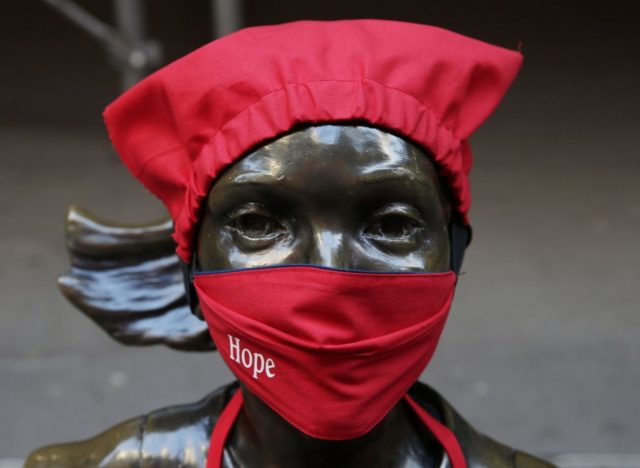Dec. 28 (UPI) — The United States on Sunday saw significant decreases in COVID-19 cases and deaths — marks that were two of the lowest in weeks, according to updated data from Johns Hopkins University.
The data shows 150,100 new coronavirus cases and about 1,200 related deaths nationwide. The case count, apart from Christmas Day, is the lowest since late November and the death toll is just the second this month that’s been 1,200 or lower.
Cases and deaths are typically lower on Sundays and Mondays, due to slower reporting over the weekends.
Since the start of the pandemic, there have been 19.14 million coronavirus cases and about 333,200 deaths in the United States, according to Johns Hopkins.
The United States is now averaging about 2,200 deaths per day, a 15% decline compared to a week ago, according to Stat. The nation is averaging 184,000 new cases per day, also a decline of almost 15% over last week.
After ascending to records for almost three weeks, the number of COVID-19 patients hospitalized nationwide (about 119,000) has leveled off and declined slightly, according to the COVID Tracking Project.
The Centers for Disease Control and Prevention has adjusted vaccine safety guidelines for persons with underlying conditions.
The updated guidance says those with underlying conditions can receive either of the approved messenger RNA, or “mRNA,” vaccines if they have not had a severe allergic reaction to any of their ingredients. The available mRNA vaccines are made by Pfizer-BioNTech and Moderna.
Those with HIV or otherwise weakened immune systems, the CDC added, can also take the vaccine but there’s a lack of hard data about potential side effects for those groups.
“People living with HIV were included in clinical trials, though safety data specific to this group are not yet available at this time,” the CDC wrote.
The CDC gave similar advice for persons with autoimmune conditions — that they can receive an mRNA vaccine but should be aware that there’s no specific safety data available for them. Potential volunteers with autoimmune diseases were excluded from clinical trials due to the uncertainty.
Texas, Tennessee and California are experiencing the fastest COVID-19 transmission rates in the country, according to updated data Monday.
Texas had the highest last week, about 133 cases per 100,000 people, followed by Tennessee (111) and California (104), according to the Brown School of Public Health.
Other COVID-19 news Monday:Scientists say the pandemic has both helped and hindered medical research in 2020 — delaying some trials while facilitating the process for others. The lessons could help streamline medical studies going forward, experts say.House Democrats will again attempt to increase the amount of direct stimulus payments for Americans from $600 to $2,000. President Donald Trump signed the relief bill late Sunday, but lawmakers can still increase the payment amount. House Republicans blocked an attempt last week to raise the amount.

COMMENTS
Please let us know if you're having issues with commenting.